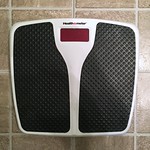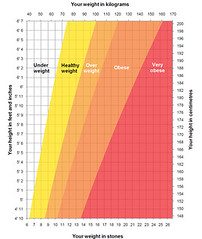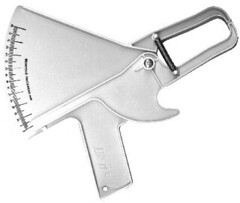 It’s roughly eight weeks now to the IBJJF Europeans. Xmas is coming and people are starting to think about their weight category and weight management for the competition. Finding the ideal weight for BJJ competition has been a hot topic in our household this year; I’ve flirted with changing weight categories as I have spent a lot of time looking at my diet to prevent excessive weight loss whilst my husband on the other hand has decided to move up a weight category which is working well for him. So how do you work out what is the best category for you?
It’s roughly eight weeks now to the IBJJF Europeans. Xmas is coming and people are starting to think about their weight category and weight management for the competition. Finding the ideal weight for BJJ competition has been a hot topic in our household this year; I’ve flirted with changing weight categories as I have spent a lot of time looking at my diet to prevent excessive weight loss whilst my husband on the other hand has decided to move up a weight category which is working well for him. So how do you work out what is the best category for you?
In this blog I’m going to run through and share my own personal thought process on this. Now bare in mind I’m a part-time grappler who likes to eat so I am not going to be recommending drastic diets, weight cuts or training regimes. I need to make a decision not just based on BJJ performance but also what will help me to be happy and healthy in my everyday life and work. Also although I have taken coaching qualifications and have a degree in sport science I am not an expert in nutrition so this approach is a mixture of science and personal experience. It isn’t any means a must do or expert guide and if this is an area you’re struggling it may be worth the investment of speaking to a BJJ friendly nutritionist or qualified personal trainer.
 For me the starting point should be what is realistic and healthy for you. Now there are a host of charts out there to help calculate your ideal weight. The most well know of these is the Body Mass Index (BMI). Now this has been subject to a host of debates regarding its validity for not taking into account body mass composition (muscle v fat) but for the case of identifying your minimum weight range it does have a place e.g. for me going under 60Kg wouldn’t be a great idea so any dreams of being able to achieve, maintain and be healthy as a featherweight (under 58.5kg in the gi) wouldn’t be a realistic! To be fair most of this is stuff you could work out with common sense but with your BMI information you can narrow it down to a couple of weight classes (for me based on my BMI I could healthily be a lightweight, middleweight or medium heavy). You can calculate your own BMI using this NHS tool.
For me the starting point should be what is realistic and healthy for you. Now there are a host of charts out there to help calculate your ideal weight. The most well know of these is the Body Mass Index (BMI). Now this has been subject to a host of debates regarding its validity for not taking into account body mass composition (muscle v fat) but for the case of identifying your minimum weight range it does have a place e.g. for me going under 60Kg wouldn’t be a great idea so any dreams of being able to achieve, maintain and be healthy as a featherweight (under 58.5kg in the gi) wouldn’t be a realistic! To be fair most of this is stuff you could work out with common sense but with your BMI information you can narrow it down to a couple of weight classes (for me based on my BMI I could healthily be a lightweight, middleweight or medium heavy). You can calculate your own BMI using this NHS tool.
Then I looked at what I weighed and my body shape. Where do I fit in the categories, how do I feel? Was moving up a category even an option (slimmer isn’t always better)? Personally I walk around at 66-67kg and I am a size 10/12 depending on the clothes store. I would have to be put on significant muscle mass to be anything but the lightest in the medium heavy category which realistically I don’t particularly want to nor have the time for training wise so that rules that one out. Leaving me with my original dilemma – middleweight (under 69kg in gi) or lightweight (under 64kg in gi).
 This leave the tricky question of how much weight could I healthily lose? This part is about body composition. Now I’m not just talking looking in the mirror and grabbing bit you think are wobbly! It’s about looking at your body fat percentages. There are a bunch of ways to do this and a friendly personal trainer can help here. I do have scales that measure body fat by a form of bioelectrical impedance but if I’m honest I don’t totally trust them to be fully accurate so prefer to use Skin Fold Calipers. These can be really accurate if you know how to use them and it’s cost-effective. This is where an experienced person become really handy to get an accurate reading. Through university I received training on using them and did more than a few tests so I used my hubby which might not be the most accurate reading but at least it’s consistent over time. There are other methods but these are generally more expensive.
This leave the tricky question of how much weight could I healthily lose? This part is about body composition. Now I’m not just talking looking in the mirror and grabbing bit you think are wobbly! It’s about looking at your body fat percentages. There are a bunch of ways to do this and a friendly personal trainer can help here. I do have scales that measure body fat by a form of bioelectrical impedance but if I’m honest I don’t totally trust them to be fully accurate so prefer to use Skin Fold Calipers. These can be really accurate if you know how to use them and it’s cost-effective. This is where an experienced person become really handy to get an accurate reading. Through university I received training on using them and did more than a few tests so I used my hubby which might not be the most accurate reading but at least it’s consistent over time. There are other methods but these are generally more expensive.
My body fat comes in at around 19% which isn’t that bad for a female who is a masters 2 competitor. It’s healthy and in the athletic range. Now depending on the exact research you read I could drop to around 14% body fat (whilst still maintaining health body fat for bodily functions). This means that I could theoretically lose around another 3-4 kg. As long as it was fat and not muscle mass etc that I lost. This would bring me to around 62 Kg and the very top of the lightweight division.
So looking at the maths it was possible but only just so I decided not take the plunge to lightweight. Mainly for the following three points….
My Health – I have a pre-existing medical condition which does make losing weight more difficult for me. I did try as an experiment to see how low I could get but I’ve always found once I get to 65Kg I started to really struggle to lose anymore weight. In fact I generally don’t feel that great at around the size and didn’t train as well. Going back to the top of article – if I’m not happy and healthy then it’s really not worth it.
Performance – If you’re struggling to train as hard as you like before competition due to your weight management then it’s not going to help your performance. Similarly it may not help your performance in competition especially if you’re close to your weight limit. If you meet your opponent (particularly in the later rounds) and your of equal skill there is very little between you. But if one has hardly eaten before the comp whilst the other has had a good breakfast and has been drinking plenty of water. The second competitor is going to be able to push harder than his opponent and ultimately win the match. I really like having breakfast pre comp!
Happiness – focusing at work and having a life outside of BJJ is hard enough on the run up to competition. If your weight is adding to your stress then it might be worth reconsidering. This isn’t our career it’s supposed to be fun!
Now I know this article sounds a lot of work just to decide not to change anything but I thought it might be useful to share my thought processes. For me reviewing your BJJ post competition is more than just look at what went right or wrong on the day. It’s about looking at the whole package not just to perform well but to ensure that I’m happy, healthy and can stay on the mat training for as long as possible.
Picture Credit – Alan Levine, NHS UK

I’ve always felt cutting weight was overrated. I understand the concept and theory behind it. I don’t think it’s not effective or useful, however, I never bought into it. I walk around at 201-206lbs everyday. I monitor what I eat and without excessive worry or adaptation, I keep my weight there. It seems to be my ideal weight and I don’t put any added stress on my body. Just my opinion.
LikeLike
I think cutting is probably the wrong term for what I do now. As I mentioned in my article i tried to drop a weight category and felt pretty bad for it. Now it’s more a case of cleaning up my diet (chocolate mainly) and I find just from that I drop the 2-3lbs I need to get to a reasonable weight that allows for a pre come breakfast.
Happiness and healthiness is probably more important to me than being the biggest girl in my weight category 😉
LikeLiked by 1 person
I agree. I came from a wrestling background and cutting weight was an intricate part of it, and I was referring to that and a general group of competitors who do cut weight for competitions. But I do agree with you. I’ve found a proper diet and healthy living has given me an ideal weight where I don’t have to worry about it before competitions. Cheers!
LikeLike